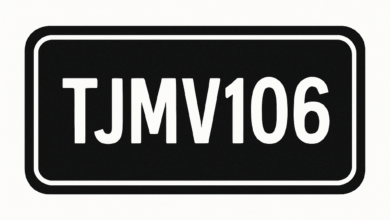Manual Practices Vc Warehouse Management System: Choosing the Best One for Your Business

Efficiency and accuracy are the keys to running a warehouse business smoothly and successfully. It demands a proactive approach, expert handling, and a set of effective strategies to ensure the smooth running of crucial warehouse operations including order management, inventory tracking, and data-driven decision-making to earn customer satisfaction and drive more growth toward your business.
With the increasing complexities of warehouse operations, the use of a warehouse management system is becoming increasingly popular to streamline these intricate tasks. However, most warehouse managers struggle to choose between manual practices and digital warehouse management solutions. That’s why in this article we will compare the key aspects of both warehouse management strategies to help you make the right decision and stay ahead of your competitors.
Initial Costs
Manual Practices: Manual practices don’t involve any upfront costs which makes them a suitable solution for various warehouse businesses that are just start-ups and have limited resources and budget. However, they are more prone to errors and can cause you heavy financial troubles in the form of fines or penalties.
Warehouse Management System: the WMS implementation requires a heavy initial investment. However, it helps warehouse managers save money in the long run by eliminating risk factors, reducing the likelihood of human mistakes, and ensuring accurate compliance with industry regulations and state laws.
Time Effectiveness
Manual Practices: warehouse management involves various intricate tasks that are quite hard to run and monitor manually, resulting in consuming a lot of time.
Warehouse Management System: relying on a reliable WMS is a more time-efficient solution as it can automate the crucial, time-consuming tasks, allowing you to focus on core tasks and contribute to your warehouse business success more actively.
Flexibility
Manual Practices: Manual practices are highly flexible and can be easily adapted to specific business needs without any customization and investment.
Warehouse Management System: different types of WMS are designed to support different sizes and types of businesses. However, asking the vendor for customized solutions can help you tackle this issue.
Efficiency and Accuracy
Manual Practices: Manual practices involve the risk of human mistakes and other potential errors that can lead to operational inefficiency such as wrong delivery, unnecessary delays, and losing potential clients.
Warehouse Management System: WMS is highly versatile and always comes with state-of-the-art technology and advanced features, enabling it to operate all warehouse management functions accurately and smoothly. In this way it helps you retain potential clients and drive more growth, the key to success.
Compatibility and Adaptability
Manual Practices: Manual practices can easily adapt to specific business needs. However, they are unable to compete with modern payroll needs and changing tax laws or rules.
Warehouse Management System: reliable WMS is highly versatile and compatible. It can easily align with the rapidly evolving needs of your business.
Compliance Management
Manual Practices: Manual strategies often fail in managing tax compliance because they are unable to keep track of rapidly evolving tax rules or regulations and industry standards. It can result in heavy fines or penalties and even legal consequences.
Warehouse Management System: WMS comes with advanced tracking tools that enable it to stay updated and comply with the latest rules or laws.
Real-Time Visibility
Manual Practices: Manual payroll strategies are often unable to provide real-time visibility into crucial tasks. The lack of comprehensive reports can result in poor decision-making and loss of potential talent.
Warehouse Management System: as we already mentioned it has auto-tracking tools, allowing it to provide comprehensive reports and real-time data analytics that can be used to make important decisions and evaluations necessary for the growth of your business.
Final Verdict
Now the ball is in your court. Manual practices are cheaper but they can be fraught with risk factors and inefficiencies that can lead to heavy financial losses. The implementation of WMS may seem an expensive investment but its ROI in the form of increasing operational efficiency, incredible scalability, seamless integration, and various other potential benefits are undeniable.
You can choose any one of them depending on your D2C or 3PL fulfillment business needs and requirements and bring both operational efficiency and accuracy to your warehouse.



